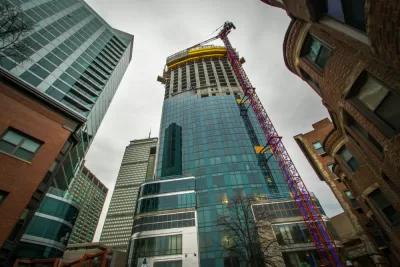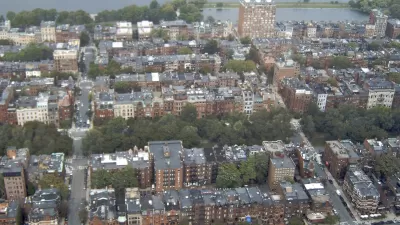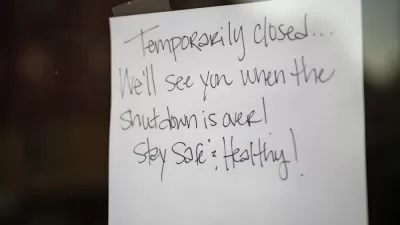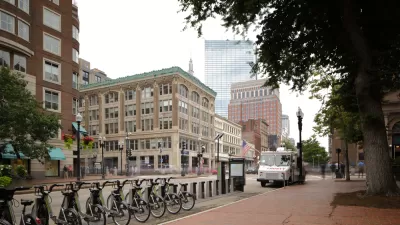Recent state legislation removed state preemption of the fees local governments can charge developers, called linkage fees. Boston is poised to act on this new power.

Boston Mayor Marty Walsh has proposed a 42 percent increase in the linkage fees paid by developers of office, lab, and other large commercial buildings in the city.
"The additional money could add tens of millions of dollars a year to city coffers, capitalizing on a life-science building boom to help fund badly needed affordable housing," writes Tim Logan to report the news. "But there also are worries that it could dampen a post-pandemic recovery for construction in Boston, and set a precedent for even higher assessments."
Mayor Walsh was scheduled last week to ask the Boston Planning & Development Agency to increase the linkage fees from $10.81 per square foot to $15.39. The city's linkage fee program was created in 1986 and hiked by 8 percent by Mayor Walsh in 2018, according to a press release from the mayor's office.
Why the sudden increase? The Commonwealth of Massachusetts recently granted the city the power to raise linkage fees more frequently. The same press release includes more: "The proposed increase follows the passage of legislation last month, originally introduced by Mayor Walsh as a Home Rule Petition, to give Boston more flexibility in adjusting Linkage fees. Previously, the BPDA was only allowed to adjust Linkage every three years based on inflation. The new law allows Boston to adjust the required payment and program guidelines, allowing Linkage to be more closely aligned with the market and fund affordable housing and workforce development programs."
As noted by Logan, the linkage fee increase would be one of the final acts of Mayor Walsh before departing to Washington to become the secretary of the U.S. Department of Labor in the Biden administration.
FULL STORY: Boston to big developers: Pay up

Planetizen Federal Action Tracker
A weekly monitor of how Trump’s orders and actions are impacting planners and planning in America.

Maui's Vacation Rental Debate Turns Ugly
Verbal attacks, misinformation campaigns and fistfights plague a high-stakes debate to convert thousands of vacation rentals into long-term housing.

Cuomo Is the Candidate of Both NIMBYs and Developers. What Gives?
In the New York City mayoral race, odd bedfellows align to preserve the housing status quo.

The Subversive Car-Free Guide to Trump's Great American Road Trip
Car-free ways to access Chicagoland’s best tourist attractions.

San Antonio and Austin are Fusing Into one Massive Megaregion
The region spanning the two central Texas cities is growing fast, posing challenges for local infrastructure and water supplies.

Charlottesville Temporarily Has No Zoning Code
A judge ordered the Virginia city to throw out its newly revised zoning code, leaving permitting for new development in legal limbo.
Urban Design for Planners 1: Software Tools
This six-course series explores essential urban design concepts using open source software and equips planners with the tools they need to participate fully in the urban design process.
Planning for Universal Design
Learn the tools for implementing Universal Design in planning regulations.
Heyer Gruel & Associates PA
JM Goldson LLC
Custer County Colorado
City of Camden Redevelopment Agency
City of Astoria
Transportation Research & Education Center (TREC) at Portland State University
Jefferson Parish Government
Camden Redevelopment Agency
City of Claremont





























